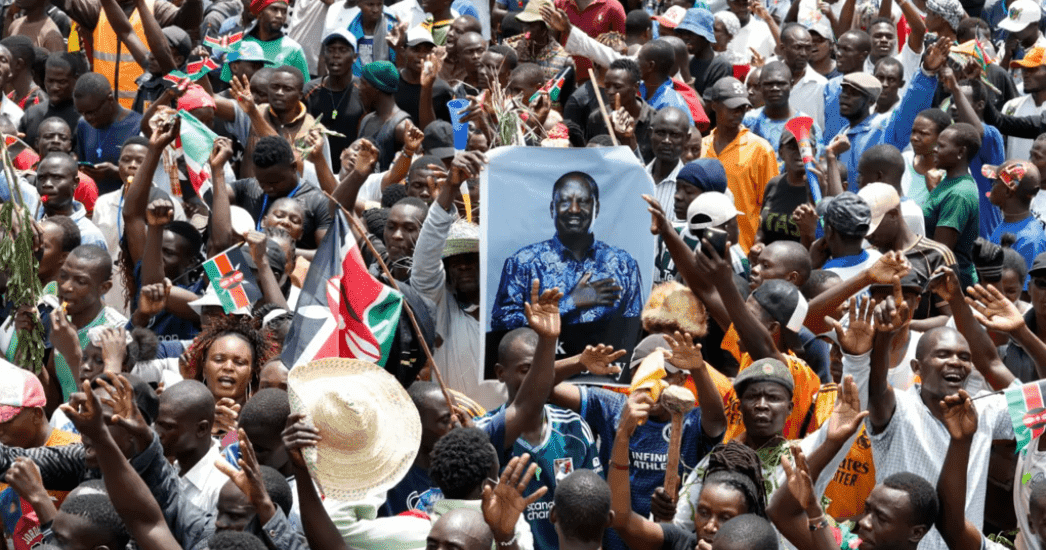We're loading the full news article for you. This includes the article content, images, author information, and related articles.
The death of former Prime Minister Raila Odinga has sparked a national conversation about the political survival of leaders who relied on his influence, with economist Justina Wamae highlighting the vulnerabilities of personality-driven politics.

The recent passing of former Prime Minister Raila Odinga on Wednesday, October 15, 2025, has ignited a significant debate across Kenya regarding the future of politicians often described as 'political orphans.' These are leaders whose careers have been closely tied to the influence and mentorship of political giants. Economist and advocate Justina Wamae has weighed in on this narrative, questioning the long-term viability of political careers built on personal allegiances rather than ideology.
Odinga, who died at the age of 80 in India from cardiac arrest, was a towering figure in Kenyan politics for decades, renowned for his role in grooming numerous political leaders. Many of these protégés publicly acknowledged his immense contributions to their careers during his state burial in Bondo, Siaya County, on Sunday, October 19, 2025.
Among those who spoke at Odinga's funeral was Suna East Member of Parliament Junet Mohamed, who openly admitted that Odinga's demise left a significant void for many political leaders, both in government and the opposition. Mohamed stated, "I have heard people saying that Junet Mohamed is now a political orphan after Raila Odinga died; it is true, and we are many, even those in the opposition seeking relevance by abusing his name. We are so many, and I am even seeking to be their chairman," a remark that drew laughter from mourners.
Justina Wamae, who served as the Roots Party deputy presidential candidate in the 2022 general election, subsequently questioned the political survival of politicians who depend on the influence of such figures. She articulated the 'demerits of holding on to someone else’s trousers/skirts for political survival,' suggesting that when a dominant political personality prioritises their own survival, their dependants are left vulnerable. Wamae cited the common Kenyan political adage, "Hapa hakuna mkate nusu!" (There is no half-bread here!), implying that political patronage offers no guaranteed long-term security.
Wamae extended her critique to consider the potential implications for supporters of President William Ruto. She posed a hypothetical scenario where President Ruto might seek re-election on an Orange Democratic Movement (ODM) ticket in the 2027 general election. "Now that they are saying that Rice will seek reelection on a Chungwa ticket, I wonder where his soldiers in Muranga, Nyeri, Kiambu, Nyandarua, etc, will go to? Clearly, they are political orphans in waiting," she stated. Wamae concluded by asserting her preference for "IDEOLOGY, POLICY, PRINCIPLES and NOT personalities."
The discussion around political orphans highlights a recurring theme in Kenyan politics: the significant role of strong personalities and political patronage in shaping careers. While Odinga was celebrated for his mentorship, his passing underscores the fragility of political alignments not rooted in shared ideologies or policy frameworks. This dynamic often leads to shifts and realignments as politicians seek new patrons or platforms for their ambitions.
The Orange Democratic Movement (ODM) has confirmed its intention to field a presidential candidate in the 2027 general elections to challenge President William Ruto, according to Kisumu Governor Anyang' Nyong'o. However, President Ruto has also hinted at a possible coalition between his United Democratic Alliance (UDA) and ODM ahead of the 2027 elections, pledging to support and strengthen ODM. This suggests a complex political landscape where alliances can be fluid and unpredictable.
The concept of 'political orphans' raises critical questions about democratic maturity in Kenya. A system heavily reliant on individual charisma and patronage can hinder the development of robust political institutions and policy-driven governance. The transition following the departure of a dominant figure often exposes these underlying vulnerabilities, leading to uncertainty and potential instability within political parties and alliances.
The ongoing discussions about potential realignments for the 2027 general election, including the possibility of President Ruto seeking an ODM ticket or a UDA-ODM coalition, highlight the fluid nature of Kenyan politics. Such scenarios underscore the importance of political actors prioritising clear ideological platforms and policy commitments to provide stability and predictability for the electorate.
As Kenya moves towards the 2027 general election, the political landscape will likely continue to be shaped by these dynamics. The emphasis on ideology and policy, as advocated by figures like Justina Wamae, could become a crucial factor in how political alliances are formed and how leaders are perceived by the electorate. Observers will be watching to see how political parties adapt to the absence of a long-standing figure like Raila Odinga and whether this leads to a more institutionalised approach to political leadership.
Keep the conversation in one place—threads here stay linked to the story and in the forums.
Sign in to start a discussion
Start a conversation about this story and keep it linked here.
Other hot threads
E-sports and Gaming Community in Kenya
Active 9 months ago
The Role of Technology in Modern Agriculture (AgriTech)
Active 9 months ago
Popular Recreational Activities Across Counties
Active 9 months ago
Investing in Youth Sports Development Programs
Active 9 months ago
Key figures and persons of interest featured in this article